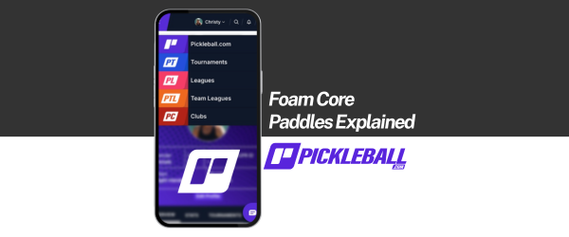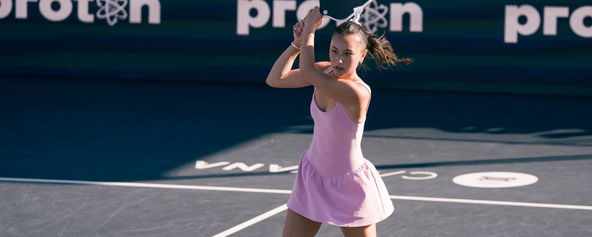
Paddle NIGHTMARE at MLP Dallas
The word on the streets at the Major League Pickleball (MLP) Dallas tournament is that an unheard of number of paddles have been failing on-site testing, leaving several pros without paddles left to practice with or compete with.
“I think it’s a process,” said Irina Tereschenko about the number of paddle failures at MLP Dallas. “The system is developing. But my two cents is, I think the players need to be a part of that process.”
MLP uses the external company Pickle Pro Labs (PPL) to conduct all on-site paddle testing at its events. The PPA Tour uses representation from USA Pickleball, the sport’s governing body, to test players’ paddles at its events. The lack of a common standard between the two professional associations represents a problem for players and the sport. Although the two testing entities use the same standards to hold paddles to, the equipment used to measure paddle criteria vary.
“Everything should be the same across the board,” said PPA pro Allyce Jones. “Whatever USA Pickleball is approving should be approved at MLP and PPA. It should be all the same. Right now, it’s all over the place.”
MLP Commissioner Brooks Wiley went on the Dink’s PicklePod recently and stated that “65% of paddles tested at MLP Atlanta failed USA Pickleball’s surface roughness limits.”
The PPA Tour has not reported the same number of paddle failures at its events, leading some players to speculate that paddles that failed in MLP Atlanta could hypothetically have been reused at PPA Tour events later on. Perhaps in answer to this, Pickle Pro Labs has been holding onto failed paddles this time around during testing at MLP Dallas.
Wiley also joined the Inside MLP Podcast back in May of this year to talk about the issues with paddle standards, saying, “The playing field is not level. There are things going on, whether it's the paddle designs themselves or a paddle's too hot and [...] we've started to hear about delamination again.”
While “delamination” has been the buzz word over the last few months, it seems that issues with paddle grit have again stolen the limelight, with many of the failed paddles testing over the grit limit in Dallas rather than getting stamped with a delamination issue.
"We’re getting a few paddles here that are not passing,” said Julian Arnold. “A lot of companies are new to coming out with a power series paddle. So they probably haven’t dialed everything in and gotten it perfected, and we’re seeing that result.”
The term “power series” generally refers to paddles with a rough-grit carbon face, which would indicate that grit is the main problem with failed paddles currently.
“A standardized test is going to be super key, so you can play up to that limit,” said Connor Garnett. “I think in any sport, you want to find that line of what that limit is and have everyone play up to that limit. There’s a couple different things – there’s grit, deflection, and a few others like delamination – getting a standardized paddle test will be helpful for players so they can really hone in.”
Thus far, the paddle brands that have failed testing have run the full spectrum – Selkirk, JOOLA, Paddletek, Pro XR, Vulcan, and more. Some pros have reported 10+ paddles failing in a row. Many feel helpless and upset upon finding out that they haven’t been playing with a legal paddle and “left out of the loop” by paddle manufacturers.
PPL’s engineer Curtis Cruz told a pickleball.com reporter on-site that some of USA Pickleball’s numeric thresholds are no longer indicative of how paddles are actually performing on-court as paddle technology has continued to evolve. PPL is working to measure the actual field performance of paddles and implement stringent standards across the board.
With standards where they are now, it’s become the Wild Wild West for paddle manufacturers, and companies are aware that the closer to the limit a paddle is, the better the paddle performs. Now everyone has started pushing the envelope. Where will it end?
Related articles

Five things to expect from the 2026 MLP Auction Draft
Unlike last year, this draft has superstars available, and lots of depth.
11 hours ago
-Jim Kloss

Best dressed at the Carvana Mesa Cup presented by Cal-AM
The fashion game was especially strong in Arizona.
1 day ago
-Victoria Radnothy

Foam Core Paddles Explained
4 days ago
-Guest Author

Alix Truong’s advice for going pro: 'You can only get better with experience'
Playing alongside the best is an ongoing journey of learning and growth.
5 days ago
-Victoria Radnothy